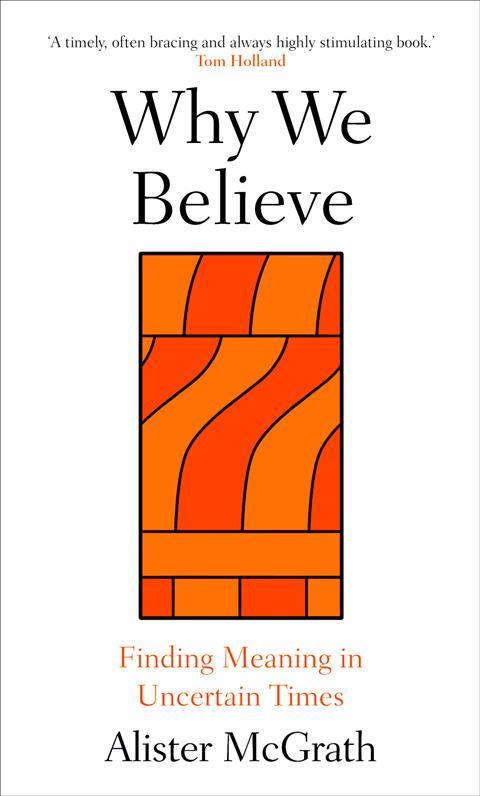Theologian Alister McGrath challenges post-Enlightenment assumptions about faith in his new book, arguing that belief is not the enemy of rationality but its necessary companion, essential to human flourishing

“To believe is to be human.”
This is the central burden that Alister McGrath aims to establish in his part-apologetic, part-philosophical work, Why We Believe: Finding Meaning in Uncertain Times (Oneworld Publications).
In a post-Enlightenment world, belief and faith are often denigrated and portrayed as having no place in a scientific and rational age. McGrath challenges this assumption, showing that all human knowledge – including science itself – rests on forms of trust and belief. Far from opposing reason, faith is intertwined with it, shaping how we interpret evidence, build relationships, and navigate life’s uncertainties. Belief, McGrath argues, is not the enemy of rationality but its necessary companion.
McGrath unfolds his argument across eight chapters, exploring what it means to believe and why belief is essential to human flourishing. He begins by asserting that belief, while extending beyond reason, does not oppose it. A purely factual existence may yield knowledge, but not meaning, since life’s deepest questions lie beyond scientific proof. Human beings, he argues, need “big pictures” of reality to anchor life – science can explain, but only belief can interpret, giving coherence and purpose.
McGrath affirms his Christian faith as a coherent “big picture” of reality, while noting that trust, vision, and meaning are universal features of belief itself. Far from being a weakness, belief provides the interpretive “map” by which we navigate life. Scientific explanations remain provisional; belief gives them shape, direction, and moral weight, addressing our deepest longings. For these reasons, McGrath argues, belief cannot be easily dismissed, and agnosticism often proves an unsustainable position.

McGrath also confronts belief’s failures and dangers – its potential to divide, deceive, or collapse altogether. He recognises that beliefs can falter, leaving people disillusioned, and that they are often condemned for breeding conflict or even destruction. Yet he argues the answer is not to reject belief, but to learn to live well with difference – to practise humility, empathy, and the art of disagreement. Dogmatism, he warns, is a real danger, though not confined to religion; politics and ideology can be just as absolute. The challenge, then, is not believing itself, but believing badly.
Overall, McGrath maps out a convincing case for why belief must not only be defended in society but recognised as something we cannot live without. Believing, he argues, is intrinsic to what it means to be human. His argument is cogent and coherent, even if at times his repeated emphasis on this central theme can feel a little laborious.
This is not, however, necessarily an easy read. McGrath writes as a public intellectual, engaging across disciplines from theology to science to philosophy. The result is stimulating but demanding, and the book is best suited to readers willing to wrestle with big ideas.
As a pastor, I’m especially aware of how valuable this book is for offering a faithful and credible representation of Christianity in the public square. While McGrath never imposes his own convictions, he makes clear that faith is both reasonable and essential to human flourishing. In doing so, he challenges the caricatures that dismiss faith as irrational and, in turn, hinder serious engagement with the gospel.
Some Christians may feel uneasy with his frequent assertion that faith “cannot be proved,” but this is best understood in the narrow sense of scientific proof, rather than as a denial of faith’s rational foundations.
Why We Believe is an important and timely book, reintroducing respectful dialogue to an area too often caricatured or dismissed. For that reason, it deserves to be both widely read and carefully considered.
Why We Believe: Finding Meaning in Uncertain Times (Oneworld Publications) is out now.





































No comments yet